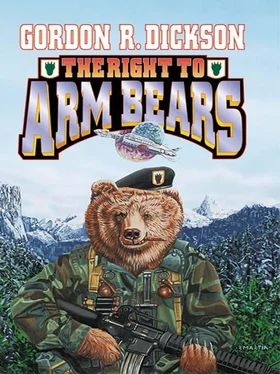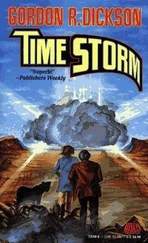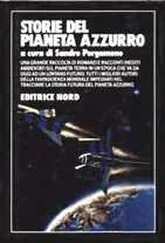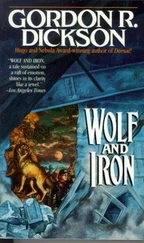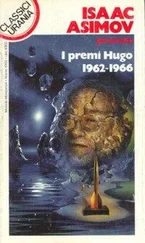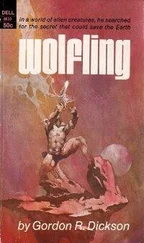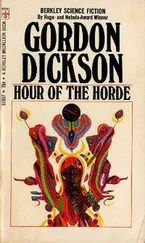“Well,” Bill began, “as I was starting to say, this whole thing came about because of a story we Shorties have. It concerns a sort of Cobbly we Shorties used to have—they’ve nearly all disappeared nowadays, back where I come from, but we used to have them. The story’s about this Cobbly and three brothers.”
The crowd had stilled amazingly. Bill was suddenly conscious of all eyes being fixed on him with the particular type of open, fascinated gaze he had occasionally seen in children hearing a story or watching a play.
“This Cobbly—” he stopped to clear his throat, then went on, “had one real powerful habit. He was able to blow rocks—even big boulders—right out of his way. He could even puff hard enough to blow a tree down, the way a storm might do. Well, these three brothers started out to set up their own home. None of them was married yet, so they headed off into the woods, and each one of them picked himself a place to build a house.”
Bill paused for a moment to see if he still had the rapt attention of his audience. Gazing down at them, he decided that if anything it was more rapt than ever. He went on.
“You see, they all knew about the Cobbly who lived in this wood, and could blow down trees and things like that, so they were all particularly concerned to build a Cobbly-proof house.”
Bill took a breath.
“Well, the first brother was the laziest of the bunch. He thought it would be good enough if he just took a lot of twigs and small branches, wove them together, and made himself a house that way. So he went to work and ran himself up a house in about a day and a half. The only thing he did that didn’t call for light branches was to put a stout bar on the inside of the front door—a bar anchored to two doorposts that were set deep in the earth.
“‘Let’s see that Cobbly break through that bar!’ he said, and rolled himself up for the night.
“Meanwhile, the other two brothers, not having finished their building, had gone back to the nearest village where they’d be safe. Well, the moon came up, and the Cobbly came out and prowled around the woods, and pretty soon he smelled the brother in his house and he chuckled to himself— because our type of Cobblies used to like to eat people alive, taking their time at it .”
Bill uttered this last sentence in the most impressive and blood-curdling tone that he could manage. He was gratified to receive in answer a sort of low moan of suspense and terror, particularly from the females in the crowd.
“Yes,” went on Bill, in an even firmer and more impressive tone of voice, “this Cobbly was just as hungry as a Cobbly had ever been. So he went up to the door of the house made of woven branches and he tried to open the door—”
Another, somewhat louder, low moan of suspense and anguish from the crowd before him.
“But the door held—” said Bill.
There was a grunt, almost of disappointment, from the crowd this time.
“But the Cobbly,” said Bill, fixing his audience with his best glittering eye, “wasn’t stopped by that. He knocked at the door—” Bill reached up and sounded his knuckles against a log rafter overhead. The crowd of village Dilbians shivered.
“He knocked again. And again,” said Bill. “Finally the sound of his knocking woke the brother who was inside the house.
“‘Who’s that, knocking?’ asked the brother.
“‘It’s just a late traveler, asking if you can’t put me up for the night,’ answered the Cobbly—”
There was a new moan of excitement from the crowd at the duplicity of this answer. Bill continued.
“‘You can’t fool me,’ answered the brother. ‘I know you’re the Cobbly that lives in these woods, and that you’d like to get in so that you could eat me up. But I’ve put too stout a bar on my door, and you can’t get through it. And I’m not going to let you in, either. So go about your business and let me sleep.’
“‘Let me in, I tell you!’ shouted the Cobbly at that. ‘Let me in—or I’ll huff, and puff, and I’ll blow your house over!’
“At that, the first brother was very much afraid, and he covered his head with his blanket. But the Cobbly outside began to huff and puff—and before you could wink, he’d blown the house over, snatched up the first brother and eaten him!”
The crowd groaned.
“Well,” went on Bill. “The Cobbly, full after the meal he’d just had, went home to sleep until the next night. That next night he went hunting again. The third brother had not yet finished building and he’d gone back into town. But the second brother had finished building his house. And he’d built a pretty good house of logs. So when the Cobbly came up and tested that door, he knew by the feel of it that there was no point even in trying to break in that way. So he called out to the second brother, just as he’d called out to the first, saying he was a traveler who’d like to be put up for the night.
“‘You can’t fool me!’ shouted the second brother. ‘I know you’re the Cobbly who lives in this woods and who’s already eaten one of my brothers. But you can’t get in at my front door.’
“‘In that case,’ answered the Cobbly, ‘I’ll just have to huff and puff until I blow your house down, too.’
“‘You can’t blow down a house made of logs!’ cried the second brother—but in spite of his brave words, he was afraid, and he covered up his head with his blanket just like the first brother had done.
“Meanwhile the Cobbly took a big lung full of air and began to huff, and puff, and huff, and puff—until at last, bang—a log flew out of the wall in front of him, and then another, and then another—and the next thing you knew he’d blown to pieces the house made of logs, and he got in and gobbled up the second brother!”
The groan that arose from the crowd at this point in the story was the deepest and most sincere tribute that tale had received so far.
“The next night,” said Bill, and paused dramatically, “the Cobbly went hunting again. He hunted and he hunted, and though he was sure the third brother was there in the forest, he couldn’t seem to find where his house had been built. At last, a little ray of light shining out through the darkness led him to it. It was no wonder the Cobbly hadn’t been able to recognize it as a house. He had passed it two or three times already. Because this house was made—” Bill paused again and his audience held its breath, “of stone!”
For a long moment the villagers continued to hold their breath in automatic anticipation. But then, slowly, expressions of puzzlement grew on their faces. They began to breathe again. Many of them were casting sidelong glances at each other, and a muttering began which spread through the whole group. Finally, from the rear somebody spoke up.
“Did you say of stone , Pick-and-Shovel?”
“That’s right,” said Bill.
“You mean, of pieces of rock?” asked More Jam from the front ranks.
“That’s exactly right,” replied Bill. “The third brother made his walls by starting with large boulders at the bottom, and working up to smaller and smaller rocks, fitting them together as he went and packing them tight with wet clay that dried hard after a little while. He bedded his rafters in the stone walls at each end and then built a roof of heavy timbers sloping down from a rooftree mounted on four posts lined up and sunk in the earth inside.”
As far as Bill knew, no Dilbian had ever thought of making a house with walls of stone. Apparently, he noted now as he watched and listened from the top of his barrel, the idea was equally as novel to the villagers. It took some little time for the buzzings of incredulity and amazement to die down. But at last, they all quieted like interested children, and he saw their eyes back on him once again.
Читать дальше
